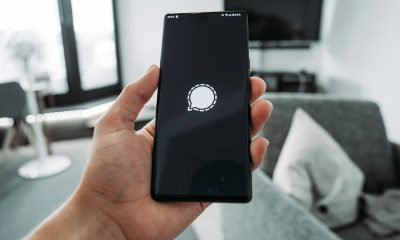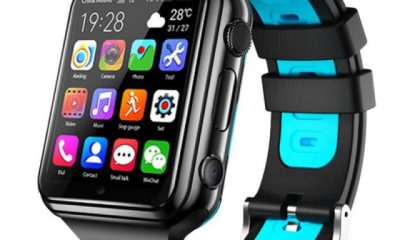Guides
Does TextNow Show Your Name?

Introduction
Privacy is one of the biggest concerns when using messaging and calling apps. TextNow has become a popular choice because it offers free texting and calling through the internet. But a common question keeps coming up: does TextNow show your name when you call or text someone?
This is an important issue because many users want to keep their identity private while communicating. Whether you’re using TextNow for casual conversations, business, or to maintain a second number, understanding how much of your personal information is visible to others matters. In this article, we’ll explain exactly how TextNow works, whether it displays your name, and under what conditions your identity might be revealed. We’ll also cover caller ID, privacy risks, and simple steps you can take to protect your personal information.
Understanding TextNow and Its Features
TextNow is a Voice over Internet Protocol (VoIP) service. Instead of traditional phone lines, it uses your internet connection to provide you with a phone number for calls and texts. When you sign up, you’re assigned a virtual number that works like a regular phone number.
Key features include:
-
Free calling and texting within supported regions
-
Virtual phone number assignment
-
Options to use the app on mobile devices, tablets, or computers
-
Voicemail and call forwarding
-
Affordable premium plans for advanced features
Unlike traditional carriers, TextNow doesn’t operate on the same Caller ID systems used by mobile networks. This difference is what makes people curious about whether their name is shown when contacting others.
Does TextNow Show Your Name?
The straightforward answer is: No, TextNow does not automatically show your name.
Here’s why:
-
TextNow only shares your number – When you make a call or send a text, the recipient sees your TextNow phone number, not your registered name.
-
Caller ID works differently – Traditional phone carriers often send both the number and an associated Caller Name (CNAM) entry. TextNow typically transmits only the number.
-
Recipient’s device matters – If the person you’re contacting has already saved your number under a name in their contacts, their phone will display that name. But that’s based on their personal phonebook, not TextNow.
So, unless you’ve shared your number elsewhere under your real name, there is no automatic “name reveal” happening through TextNow.
Situations Where Your Name Might Appear
Even though TextNow does not broadcast your name by default, there are scenarios where your identity might still show up:
-
Profile settings
If you enter your real name in your TextNow account profile, it is stored on your account. While TextNow does not normally transmit this during calls or texts, it may be visible in certain contexts such as app-to-app messaging. -
Caller ID databases
Some third-party caller lookup services cross-reference numbers with names collected from public sources. If you’ve used your TextNow number in places like online registrations or social media, your name might become associated with that number. -
Saved contacts
If someone has your number saved in their phone, they’ll see the name they’ve assigned to it. This is not coming from TextNow itself but from the contact list on their device. -
Emergency or legal disclosures
TextNow may provide name, address, or account details to emergency services or law enforcement when required by law. This information is not visible in everyday communications but can be accessed in critical situations. -
Paid or advanced services
Some advanced VoIP or business solutions allow you to set a custom Caller ID name. Standard TextNow users don’t typically have this feature, but it exists in certain cases.
How Caller ID Works with TextNow
To better understand why your name usually doesn’t show, let’s break down Caller ID:
-
Traditional phone networks send both the phone number and sometimes the registered name attached to it.
-
VoIP systems like TextNow send only the number. That means the recipient’s phone has no automatic way to know your name.
-
The recipient’s phone may fill in the blank by using saved contacts or databases.
This means your privacy is better protected on TextNow than with many traditional carriers because your name isn’t automatically tied to your number.
Privacy and Security Considerations
Even though TextNow doesn’t display your name by default, it’s important to be mindful of privacy risks:
-
Database linking: If you use your TextNow number for online accounts under your real name, lookup services could link them.
-
Identity misuse: Some people have reported others using their email or name to create TextNow accounts. Fortunately, this doesn’t mean the name automatically shows during calls.
-
Anonymity limits: While TextNow provides some privacy, it isn’t completely anonymous. Your activity may still be traceable through IP addresses, payment methods, or legal requests.
Tips to Stay Private on TextNow
If your goal is to keep your identity safe, follow these best practices:
-
Use a nickname or pseudonym in your profile instead of your real name.
-
Avoid linking your TextNow number to social media accounts or services that use your real identity.
-
Don’t share your number publicly in forums or websites where it could be crawled and added to databases.
-
Regularly change your number if you want to maintain higher levels of anonymity.
-
Be cautious with contacts – remember, if someone saves your number under your real name, they’ll always see that name when you contact them.
-
Upgrade with caution – some advanced services may let you customize Caller ID, so use that carefully if privacy is a concern.
Common Misconceptions
-
“TextNow automatically shows your account name to others.”
False. Only your number is transmitted. -
“If I use TextNow, my calls are completely anonymous.”
Not entirely. While your name isn’t shown, authorities can still trace the account if necessary. -
“TextNow works exactly like regular carriers.”
No. TextNow relies on VoIP technology, which behaves differently from traditional carrier systems.
FAQs
1. Does TextNow show your name when calling someone?
No. By default, TextNow only displays your assigned number. The recipient will not see your name unless they’ve saved your number in their contacts.
2. Can someone look up my name from my TextNow number?
Possibly. If you’ve used your TextNow number in places tied to your real name, caller ID databases or lookup apps may connect the two. Otherwise, it usually won’t reveal your identity.
3. Does TextNow show my name in text messages?
No. Text messages only show your number. Any name the recipient sees comes from how they’ve saved your contact information in their phone.
4. Can I set a custom Caller ID name with TextNow?
Most free and standard TextNow accounts do not allow custom Caller ID names. Advanced VoIP or business accounts may have that option.
5. Will emergency services see my name if I call 911 from TextNow?
Yes. In emergency cases, TextNow is required to provide account information like your name and address to emergency responders.
Read More: FeedBuzzard.com Latest — What’s New and Why It Matters
Conclusion
So, does TextNow show your name? No, not under normal circumstances. TextNow is designed to only show your assigned virtual number when you make calls or send texts. Any name that appears on the recipient’s end usually comes from their saved contacts or third-party databases, not from TextNow itself.
That said, there are situations where your name might surface—such as through emergency services, caller lookup apps, or if you’ve entered personal information into your profile. If privacy matters to you, keep your profile anonymous, avoid linking your number to personal accounts, and limit where you share it.
TextNow strikes a balance between convenience and privacy. It doesn’t automatically expose your name, but users should still practice safe digital habits to ensure their information remains private.
-

 Gadgets3 years ago
Gadgets3 years agoDoes Nest Thermostats Contain Cameras Or Microphones? Is It Safe For you?
-

 Guides1 year ago
Guides1 year ago10 Best Apps To Control All Your Smart Home Devices.
-

 Gadgets3 years ago
Gadgets3 years agoWhat Is The Purpose Of Red Button On The SimpliSafe Keypad?
-

 Gadgets3 years ago
Gadgets3 years agoComplete Guide About Equalizer settings for Samsung-Soundbar
-

 Accessories2 years ago
Accessories2 years agoBlink Camera’s Temperature Sensor Settings, and More
-

 Accessories2 years ago
Accessories2 years agoCan Siri Control Samsung Televisions And Are Samsung TVs Homekit Compliant?
-

 Solutions3 years ago
Solutions3 years agoWhy is My Samsung TV Picture So Dark? Exploring the Possible Causes
-

 Gadgets3 years ago
Gadgets3 years agoFitbit Symbols Meaning: What Do The Fitbit Icons Mean?























































































































